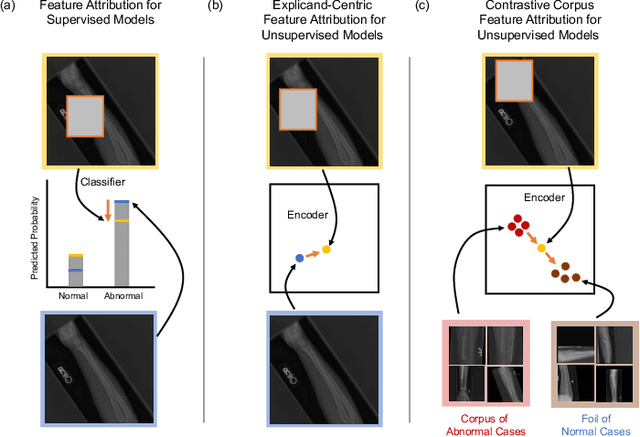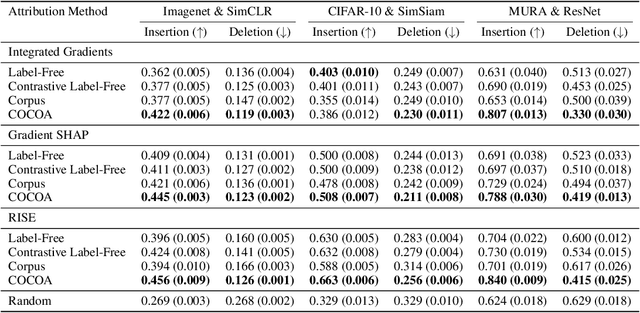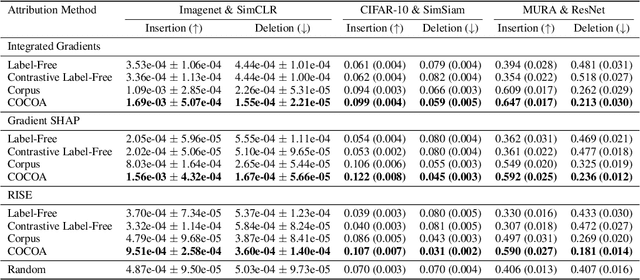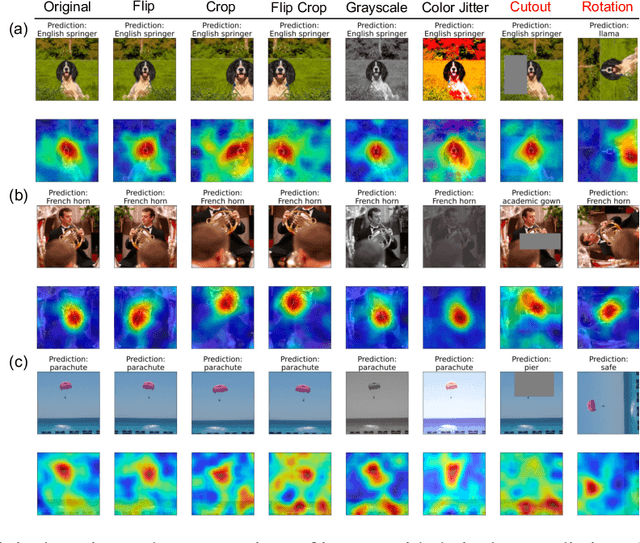Contrastive Corpus Attribution for Explaining Representations
Paper and Code
Sep 30, 2022



Despite the widespread use of unsupervised models, very few methods are designed to explain them. Most explanation methods explain a scalar model output. However, unsupervised models output representation vectors, the elements of which are not good candidates to explain because they lack semantic meaning. To bridge this gap, recent works defined a scalar explanation output: a dot product-based similarity in the representation space to the sample being explained (i.e., an explicand). Although this enabled explanations of unsupervised models, the interpretation of this approach can still be opaque because similarity to the explicand's representation may not be meaningful to humans. To address this, we propose contrastive corpus similarity, a novel and semantically meaningful scalar explanation output based on a reference corpus and a contrasting foil set of samples. We demonstrate that contrastive corpus similarity is compatible with many post-hoc feature attribution methods to generate COntrastive COrpus Attributions (COCOA) and quantitatively verify that features important to the corpus are identified. We showcase the utility of COCOA in two ways: (i) we draw insights by explaining augmentations of the same image in a contrastive learning setting (SimCLR); and (ii) we perform zero-shot object localization by explaining the similarity of image representations to jointly learned text representations (CLIP).
 Add to Chrome
Add to Chrome Add to Firefox
Add to Firefox Add to Edge
Add to Edge